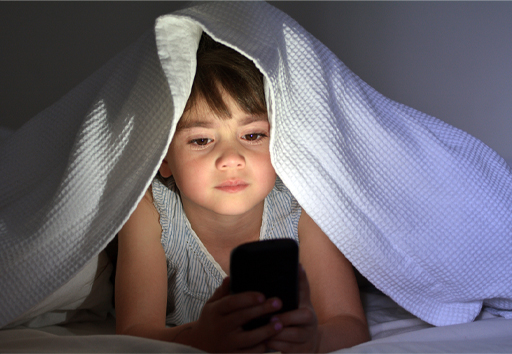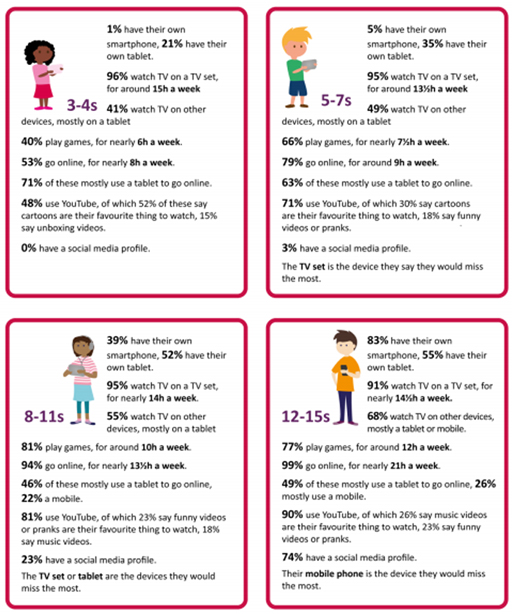1 Screen time and internet use in the early years
Screen time can be defined as the time spent using a device such as an electronic tablet, computer or games console, as well as time spent watching television. Children increasingly have access to the internet via mobile devices, and many older children also access social media via the accounts of other people known to them. This course is focused on children aged 0–8 years; however, Glazzard and Mitchell (2018) have previously estimated that as many as ‘one in four of 8 to 11 year olds have a social media profile’ (p. 7). This suggests that children become interested in social media and are accessing and engaging with the internet before the age of 8. Therefore, it is important to start educating children from a young age to prepare them to be able to develop healthy ways of using the internet and, when older, social media.
In relation to children aged 0–8 years, it is reported that very young children are being exposed to screen time because they are using electronic devices. This relatively new phenomenon of babies and toddlers using electronic devices is causing alarm because of the concerns that screen time is affecting young children’s health. In response to such concerns, the World Health Organization (WHO) (2019) issued guidelines on physical activity, sedentary behaviour and sleep for children under 5 years of age. The guidelines state that babies under one should not have any screen time and children aged 3–4 should be limited to one hour per day.
However, the WHO guidance has not been endorsed by the National Health Service (NHS) in the UK, and there is lack of clear guidance for parents and professionals about how much screen time children under 5 should be allowed. This may be seen as unhelpful to parents and professionals who are responsible for educating and bringing up children in a digital world. However, it stands to reason that if children become interested in and, in some cases even potentially dependent on, the use of electronic devices from a very young age, then they are less likely to be engaging with physical activity, which can therefore lead to a higher level of sedentary behaviour. It is suggested that higher levels of sedentary behaviour are associated with childhood obesity (Public Health England, 2019). It is also likely that engaging with screen time from a very young age will ‘fuel’ children’s interest in the internet and also social media as they grow older
As stated previously, many children are thought to be using social media from the age of 8, even when a young person has to be at least 13 years old before they can have an account for TikTok, Facebook and Instagram. Therefore, social media is featuring in the lives of many young people – for better or for worse – and this in turn may have an impact on their mental health. The influences of social media are suspected of being mostly negative, so this session aims to outline some of the concerns about social media and the risks it can pose to children’s mental health, as well as outlining some of the possible positive influences.
Look at the statistics in the infographic in Figure 2. It’s a snapshot of children’s digital lives (Ofcom, 2017).


